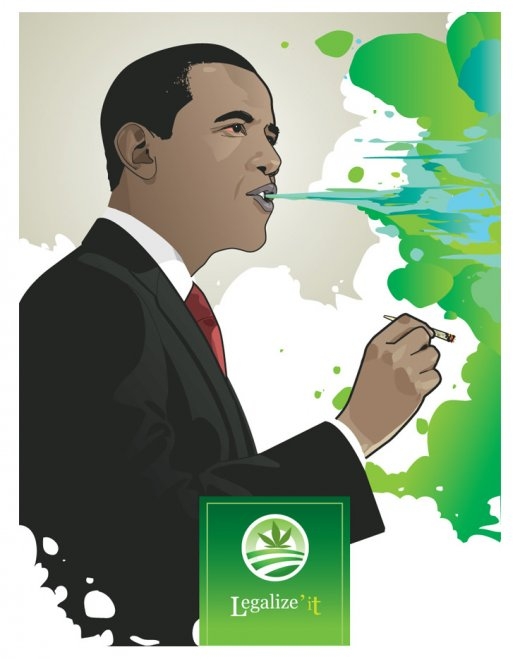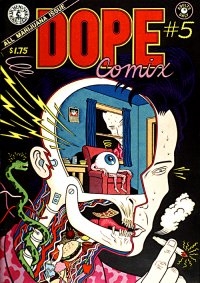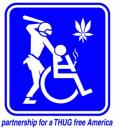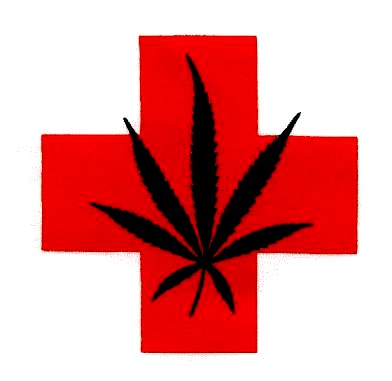
ALTERNET: The Tax & Regulate Cannabis 2010 campaign has just achieved a major victory in its efforts to legalize marijuana for all adults in California — they have gathered the signatures necessary for inclusion on the state’s November ballot. “This is the next step to sane cannabis policies and the end to the hypocrisy and unjust prohibition of cannabis,” pot entrepreneur Richard Lee told me Monday morning. He is the co-proponent and a major sponsor of the Tax Cannabis initiative and the force — and money — behind Oaksterdam, the successful marijuana-friendly section of Oakland. This win means that Californians will be the first in the nation to decide whether they believe marijuana ought be taxed and regulated for all adults over 21, much the same way alcohol is. The drug reform movement’s eyes will be on California next year, because many advocates believe that if the initiative passes, many other states could follow. Support for marijuana legalization is at an all-time high, with polls ranging from 44 to 52 percent national support. In California, where marijuana has been legalized for medical use since 1996, 56 percent support legalization. MORE
ALTERNET: These days, it seems like everyone is talking in earnest about marijuana legalization, once dismissed  as little more than a Cheech and Chong pipe dream. Indeed, a new poll reveals that 53 percent of Americans now support ending marijuana prohibition. Bolstered by increasing public support for something once considered to be a political third rail, lawmakers from Rhode Island to Washington State have put the issue on the table for consideration. And citizen initiatives (particularly in California) are cropping up faster than ditch weed. These are welcome developments to a retired police chief like me who oversaw the arrests of countless people for marijuana and other drugs, but saw no positive impact from all the blood, sweat and tears (and money) put into the effort. Soon, it seems, cops may no longer have to waste time and risk lives enforcing pot laws that don’t actually prevent anyone from using marijuana. Yet, I’m alarmed that the above-mentioned poll showing majority support for marijuana legalization also found that fewer than one in 10 people agree that it’s time to end the prohibition of other drugs. This no doubt makes sense to some readers at first glance, since more people are familiar with marijuana than other drugs like cocaine, heroin or meth. However, even a cursory study of our drug war policies will reveal that legalizing pot but not other drugs will leave huge social harms unresolved. MORE
as little more than a Cheech and Chong pipe dream. Indeed, a new poll reveals that 53 percent of Americans now support ending marijuana prohibition. Bolstered by increasing public support for something once considered to be a political third rail, lawmakers from Rhode Island to Washington State have put the issue on the table for consideration. And citizen initiatives (particularly in California) are cropping up faster than ditch weed. These are welcome developments to a retired police chief like me who oversaw the arrests of countless people for marijuana and other drugs, but saw no positive impact from all the blood, sweat and tears (and money) put into the effort. Soon, it seems, cops may no longer have to waste time and risk lives enforcing pot laws that don’t actually prevent anyone from using marijuana. Yet, I’m alarmed that the above-mentioned poll showing majority support for marijuana legalization also found that fewer than one in 10 people agree that it’s time to end the prohibition of other drugs. This no doubt makes sense to some readers at first glance, since more people are familiar with marijuana than other drugs like cocaine, heroin or meth. However, even a cursory study of our drug war policies will reveal that legalizing pot but not other drugs will leave huge social harms unresolved. MORE
 WALL STREET JOURNAL: New Jersey is poised to become the next state to allow residents to use marijuana, when recommended by a doctor, for relief from serious diseases and medical conditions. The state Senate has approved the bill and the state Assembly is expected to follow. The legislation would then head to the governor’s office for his signature. Gov. Jon Corzine, the Democrat who lost his re-election bid last month, has indicated he would sign the bill if it reaches his desk before he leaves office in January. It would likely be one of Mr. Corzine’s last acts before relinquishing the job to Republican Chris Christie. Mr. Christie has indicated he would be supportive of such legislation, but had concerns that one draft of a bill he read didn’t have enough restrictions, a spokeswoman said. The bill has been endorsed by the New Jersey Academy of Family Physicians and the New Jersey State Nurses Association. The New Jersey bill would allow people with debilitating medical conditions to grow, possess and use marijuana for personal use, provided that a physician allows it after completing a full assessment of the patient’s history and condition. The conditions that are stipulated in the Senate bill include cancer, glaucoma and human immunodeficiency viruses. MORE
WALL STREET JOURNAL: New Jersey is poised to become the next state to allow residents to use marijuana, when recommended by a doctor, for relief from serious diseases and medical conditions. The state Senate has approved the bill and the state Assembly is expected to follow. The legislation would then head to the governor’s office for his signature. Gov. Jon Corzine, the Democrat who lost his re-election bid last month, has indicated he would sign the bill if it reaches his desk before he leaves office in January. It would likely be one of Mr. Corzine’s last acts before relinquishing the job to Republican Chris Christie. Mr. Christie has indicated he would be supportive of such legislation, but had concerns that one draft of a bill he read didn’t have enough restrictions, a spokeswoman said. The bill has been endorsed by the New Jersey Academy of Family Physicians and the New Jersey State Nurses Association. The New Jersey bill would allow people with debilitating medical conditions to grow, possess and use marijuana for personal use, provided that a physician allows it after completing a full assessment of the patient’s history and condition. The conditions that are stipulated in the Senate bill include cancer, glaucoma and human immunodeficiency viruses. MORE
LOS ANGELES TIMES: There are about 120 Starbucks coffee outlets within the Los Angeles city limits. According to the most reliable estimates, there are somewhere between 900 and 1,000 medical marijuana dispensaries. Mull over the implications of that comparison and you’re on the way to understanding why the City Council seems enmeshed in an endless wrangle over how to regulate the number and sites of the nonprofit cooperatives allowed by local ordinance to distribute cannabis to individuals with doctors’ prescriptions. So far, it’s been a debate whose observers could be forgiven for wondering whether they’d entered the council through a looking glass. All that’s missing is the Hookah-smoking Caterpillar. Last week, for example, the lawmakers — who are scheduled to take another cut at an ordinance today — voted to cap the number of dispensaries at 70, though the 186 establishments that registered with the city after a poorly drafted 2007 “moratorium” on new  dispensaries was ruled illegal will be allowed to stay open. Got that? The number is “capped” at 70, but 186 will be allowed to operate. Today, the council again will take on the vexing question of whether to increase the distance between dispensaries and schools, parks, churches and private residences. The real reason the City Council is having such a hellish time coming to grips with this issue is that this is one of those areas where social attitudes and thinking simply have moved beyond conventional legal thinking or, for that matter, the permissible language of politics. Medical marijuana was, from the start, a back door to legalization, and now it’s swung wide open. If we really believed cannabis was a normative medical remedy, it would be sold in pharmacies like everything else your doctor prescribes. Instead, the council is trying to regulate it in just the way we control bars or liquor stores or any other vendor of recreational intoxicants, while paying lip service to the really rather limited medicinal necessities. MORE
dispensaries was ruled illegal will be allowed to stay open. Got that? The number is “capped” at 70, but 186 will be allowed to operate. Today, the council again will take on the vexing question of whether to increase the distance between dispensaries and schools, parks, churches and private residences. The real reason the City Council is having such a hellish time coming to grips with this issue is that this is one of those areas where social attitudes and thinking simply have moved beyond conventional legal thinking or, for that matter, the permissible language of politics. Medical marijuana was, from the start, a back door to legalization, and now it’s swung wide open. If we really believed cannabis was a normative medical remedy, it would be sold in pharmacies like everything else your doctor prescribes. Instead, the council is trying to regulate it in just the way we control bars or liquor stores or any other vendor of recreational intoxicants, while paying lip service to the really rather limited medicinal necessities. MORE
 WASHINGTON POST: The U.S. Senate passed a bill Sunday that clears the way for the District government to allow medical marijuana use and to spend local tax dollars to help low-income women pay for abortions. More than a decade ago, D.C. voters overwhelmingly approved a ballot measure that would allow for the possession, use, cultivation and distribution of marijuana if recommended by a physician for serious illnesses. Initiative 59 passed with 69 percent of the vote in 1998, but before it could take effect, Congress passed legislation banning the practice in the District. The latest bill, which passed the House on Thursday, also continues to allow needle-exchange programs in a bid to limit the spread of HIV and AIDS, a strategy that Congress had blocked in the District until 2007. It also provides $752 million in federal funds for the District as part of a larger spending package. “This is the biggest win for home rule in decades,” said Del. Eleanor Holmes Norton (D-D.C.). President Obama is expected to sign the bill into law this week. The District would join Alaska, California, Colorado, Hawaii, Maine, Michigan, Montana, Nevada, New Mexico, Oregon, Rhode Island, Vermont and Washington in allowing medical marijuana. MORE
WASHINGTON POST: The U.S. Senate passed a bill Sunday that clears the way for the District government to allow medical marijuana use and to spend local tax dollars to help low-income women pay for abortions. More than a decade ago, D.C. voters overwhelmingly approved a ballot measure that would allow for the possession, use, cultivation and distribution of marijuana if recommended by a physician for serious illnesses. Initiative 59 passed with 69 percent of the vote in 1998, but before it could take effect, Congress passed legislation banning the practice in the District. The latest bill, which passed the House on Thursday, also continues to allow needle-exchange programs in a bid to limit the spread of HIV and AIDS, a strategy that Congress had blocked in the District until 2007. It also provides $752 million in federal funds for the District as part of a larger spending package. “This is the biggest win for home rule in decades,” said Del. Eleanor Holmes Norton (D-D.C.). President Obama is expected to sign the bill into law this week. The District would join Alaska, California, Colorado, Hawaii, Maine, Michigan, Montana, Nevada, New Mexico, Oregon, Rhode Island, Vermont and Washington in allowing medical marijuana. MORE
